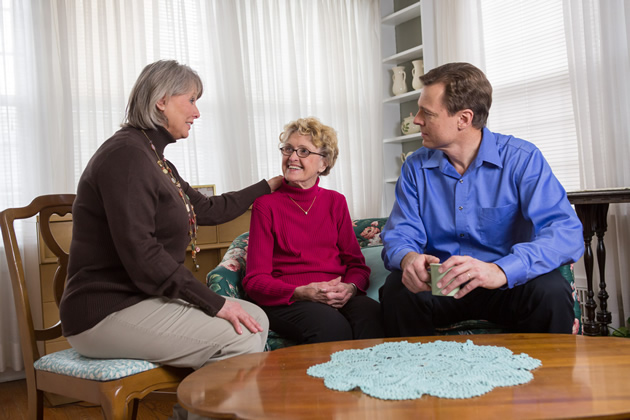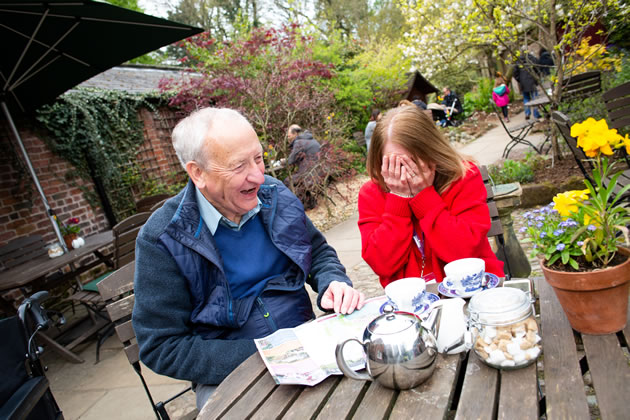Planning for Care: The Importance of Early Consideration and Proactive Approaches
Ad - Home Instead Hammersmith and Chiswick advises on the best time to think about care
ú
When is the Best Time to Think About Care?
Caring for loved ones as they age is a deeply personal and often challenging journey. The purpose of this article is to highlight the importance of early consideration for care, emphasising that it is never too early to start planning. Modern care goes beyond traditional services, allowing individuals to remain in their homes if they prefer. Here, we will explore various factors to consider, potential scenarios, and the benefits of early care planning to promote healthy ageing.
The Importance of Early Care Planning
It's essential to understand that care isn't just for those who can no longer live independently. Early care planning can address a range of needs, from managing chronic conditions to providing support after a hospital stay. Engaging care services early can prevent the premature deterioration of health and improve the quality of life for both individuals and their families. This proactive approach supports healthy ageing, enabling individuals to maintain their independence and well-being.
Types of Care Services
Complementing Functional challenges: Care services can assist individuals experiencing challenges due to ageing, frailty, or illness. This support often involves help with daily activities such as bathing, dressing, and meal preparation.
Specialist Care Providers: Organisations like Home Instead offer services beyond standard care. They can provide a care tailored to the individual, for example they can provide care to enable Somone one to regain lost functions and to stay well. They also can provide care specific to One’s condition. This support can enable the client to manage their condition effectively; they can provide specialised support for conditions such as Parkinson’s, Dementia, and Motor Neuron Disease. Additionally, they offer Palliative Care, assisting with practical matters, planning, and execution at each stage.
Reablement Care: After an illness or hospital admission, individuals may lose confidence and become dependent. There might be many reasons for this including decline in mobility, baseline function, lack of energy etc. Goal-oriented, short-term reablement care can help them regain independence and promote healthy ageing.
EXAMPLE Case Study
Consider Mrs Smith, who recently experienced a fall that left her shaken and less confident in her mobility. She became reluctant to venture out of her house in case she has another fall, she even stopped going to her hairdresser alone. Initially reluctant to seek help, she engaged in a reablement care service from Home Instead.
- She had an initial assessment by our in-house postural stability professional, and she then had a tailor-made exercise her Caregivers supported her with.
- They also ensured that she had a hot lunch and prepared a sandwich for the evening.
- They ensured she took her medication regularly which helped to stabilise her blood pressure.
- The Caregivers started accompanying her to shops and the Hairdresser until she felt confident enough going by herself.
Through this tailored support, Mrs Smith regained her independence, confidence, and overall well-being. This proactive approach prevented further decline and improved her quality of life, exemplifying the principles of healthy ageing.
Identifying the Need for Care
Families often recognise the need for care when noticing signs such as:
- Inadequate eating and drinking
- Recurrent falls
- Isolation and loneliness
- Poor personal hygiene
- Medication mismanagement
- Missed appointments
- Inability to cook
- Withdrawal from social activities
Choosing Between Nursing Home and Home Care
Deciding between a nursing home and home care depends on individual preferences, with modern care a person can stay in their own home until the end if they chose to do so.
Home Care: This option can be customised from a few hours a week to live-in support, allowing individuals to remain in familiar surroundings. It offers autonomy and personalised care.
Care Home: Provides an all-around service, including social interaction with other residents, which some may prefer. But some clients might find the lack of autonomy undesirable.
Financial considerations also play a role. For instance, selling a home to fund care might be necessary, but various options like equity release can also help.
Conclusion
It is never too early to start planning for care. Modern care options can be more than just minimal assistance; they can enhance well-being and maintain independence, promoting healthy ageing. For more information on our care solutions and how a few hours of home care can make a difference, please contact us at 02087461213 or email hello@hc.homeinstead.co.uk.
By proactively planning for care, families can ensure their loved ones receive the support they need to live fulfilling, independent lives in the comfort of their own homes, supporting their journey of healthy ageing and longevity.

Related links
|
